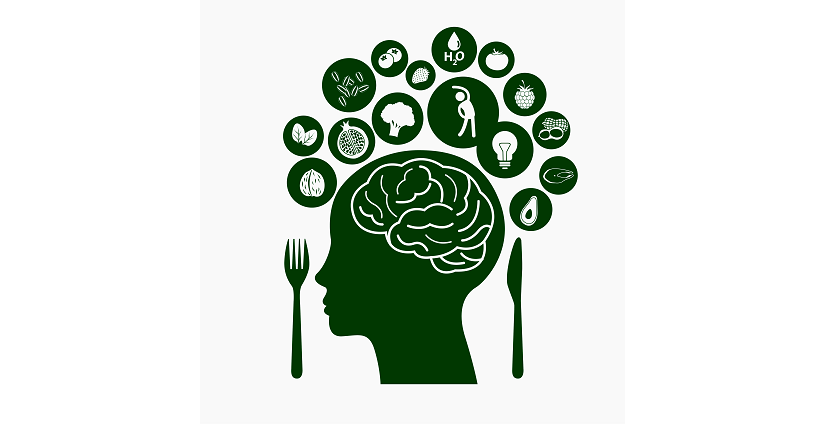
We are what we eat. As the quality of our food intake has decreased so has the quality of our health. However, there is hope! New research is pointing to nutrition as a possible key in reducing your risk for developing Alzheimer’s disease.
Some think Alzheimer’s and other forms of dementia are part of aging, which is not the case! Alzheimer’s disease rates are projected to triple by 2050, according to Alzheimer’s Disease International. Triple! An increase in disease prevalence has an impact on our health care system, caregiver networks, our loved ones, and our pocketbooks. The anticipated long-term care costs are expected to begin at $41,000. Listed below are theories on how diet impacts Alzheimer’s disease:
1) Our ability to use insulin isn’t as good as it used to be. Even if you don’t have diabetes, the older we get the more difficult it is to manage blood sugars. Being overweight makes it harder for your body to use insulin. As a result, blood sugar stays in the blood instead of moving into your muscle cells and brain for energy. High blood sugar can also damage your blood vessels over time.
2) Complex brain research suggests that naturally occurring proteins in our brains can change over time. A buildup of these proteins tends to increases inflammation, which is damaging to brain function.
The fix:
The good news: simple dietary changes can reduce your risk of developing Alzheimer’s disease! Even better- the dietary interventions also help manage diseases like heart disease, stroke, and diabetes. Listed below are tips from a variety of sources on dietary changes you can make:
1) Make plants the foundation of your diet. That does not mean become a vegetarian. What it does mean is that you aim to eat 2 servings of non-starchy vegetables at each meal. Vegetables and fruits are full of antioxidants. Antioxidants help reduce inflammation, may help slow cognitive decline. An optimal goal would be 5-9 servings of non-starchy vegetables per day. Non-starchy vegetables include:
- Tomatoes
- Cucumbers
- Broccoli
- Cauliflower
- Carrots
- Green leafy vegetables
- Mushrooms
- Zucchini and yellow squash
Just to name a few! Either one cup of raw vegetables or ½ cup of cooked vegetables is considered a serving. You can NEVER eat too many vegetables. Just be sure to leave off the butter, cheese, and cream. These extras are full of saturated fat and lead to my next point. . .
2) Back off the fats! While popular media is leading the public to believe that whole milk and butter are good for you, research supports that saturated fat from these foods can hurt your heart. They are also a significant source of extra calories, which can lead to weight gain. Be sure to get your fats from healthy sources, like olive oil, nuts, and nut butters. Getting omega-3 fatty acids from fish, walnuts, and canola oil may actually offer brain (and heart!) health benefits.
3) Watch the sweets. Diabetes alone is a risk factor for developing Alzheimer’s disease. Further, the Mayo Clinic found that people over 70 with a high intake of carbohydrates, especially from sugars, were more likely to experience decline in brain function. This was over and above healthy cognitive decline over a four year period. Experts think that too much sugar in the blood stream may keep the brain from using it properly. Note: DON’T GO LOW CARB! Just get your carbohydrates from whole grain sources a moderate amount of fruit, and starchy vegetables.
4) Consider skipping extra vitamins. Some nutrients - like vitamin K, lutein, B12, and vitamin E – may help slow mental decline. However, supplements containing iron and copper may not be helpful. The bottom line: try to get your nutrients from a balanced diet. B12 is present in red meat and eggs. Vitamin K and vitamin E, in green leafy vegetables. Lutein can be found in brightly colored produce. First and foremost, talk to your physician before stopping any recommended vitamin or adding a new one. Some vitamin supplements can have interactions with prescribed medications.
5) Move more! This is a no brainer, but many of us don’t do it! The American Heart Association recommends 150 minutes of moderate cardiovascular exercise per week. That means five 30 minute sessions over 7 days. This exercise should be easy enough that you can talk in full sentences, but hard enough to increase heart rate. Swimming, bicycling, aerobic dance classes and walking at a brisk pace are examples of cardiovascular exercise. Good news! Experts say that even breaking up the exercise into three 10 minute sessions in one day still provides a benefit.
The Take Away:
Find a healthy change and make it.
- Add one cup of non-starchy vegetables every day
- Cut out the afternoon cookie and swap the sweet tea for water
- Work in 30 minutes of moderate exercise most days of the week
If you are caring for someone with dementia, we can help! Trident offers the following free support groups each month:
- Caregiver Support Group- 3rd Tuesday of each month from 6 – 7 PM at Trident Medical Center, Trident Cancer Center.
- Dementia Support Group- 4th Wednesday of each month from 6 – 8 PM at Trident Medical Center, Café B.
To register for either of these events, call 843-797-3463
References:
Mayo Clinic. Eating Lots of Carbs, Sugar May Raise Risk of Cognitive Impairment, Mayo Clinic Study Finds. Retrieved 8 June 2015 from www.newsnetwork.mayoclinic.org/discussion/eating-lots-of-carbs-sugar-may-raise-risk-of-cognitive-impairment-mayo-clinic-study-finds/
Physicians Committee for Responsible Medine. Dietary Guidelines for Alzheimer’s Prevention. Retrieved 8 June 2015 from www.pcrm.org/health/reports/dietary-guidelines-for-alzheimers-prevention
Today’s Dietitian. MIND Diet May Significantly Protect Against Alzheimer’s Disease. Retrieved 12 June 2015 from www.todaysdietitian.com/news/050415_news.shtml
Today’s Dietitian. Protecting Cognitive Function – Evidence Shows Diet and Lifestyle Factors Positively Affect the Aging Brain. Retrieved 12 June 2015 from www.todaysdietitian.com/newarchives/021313p58.shtml


Comments